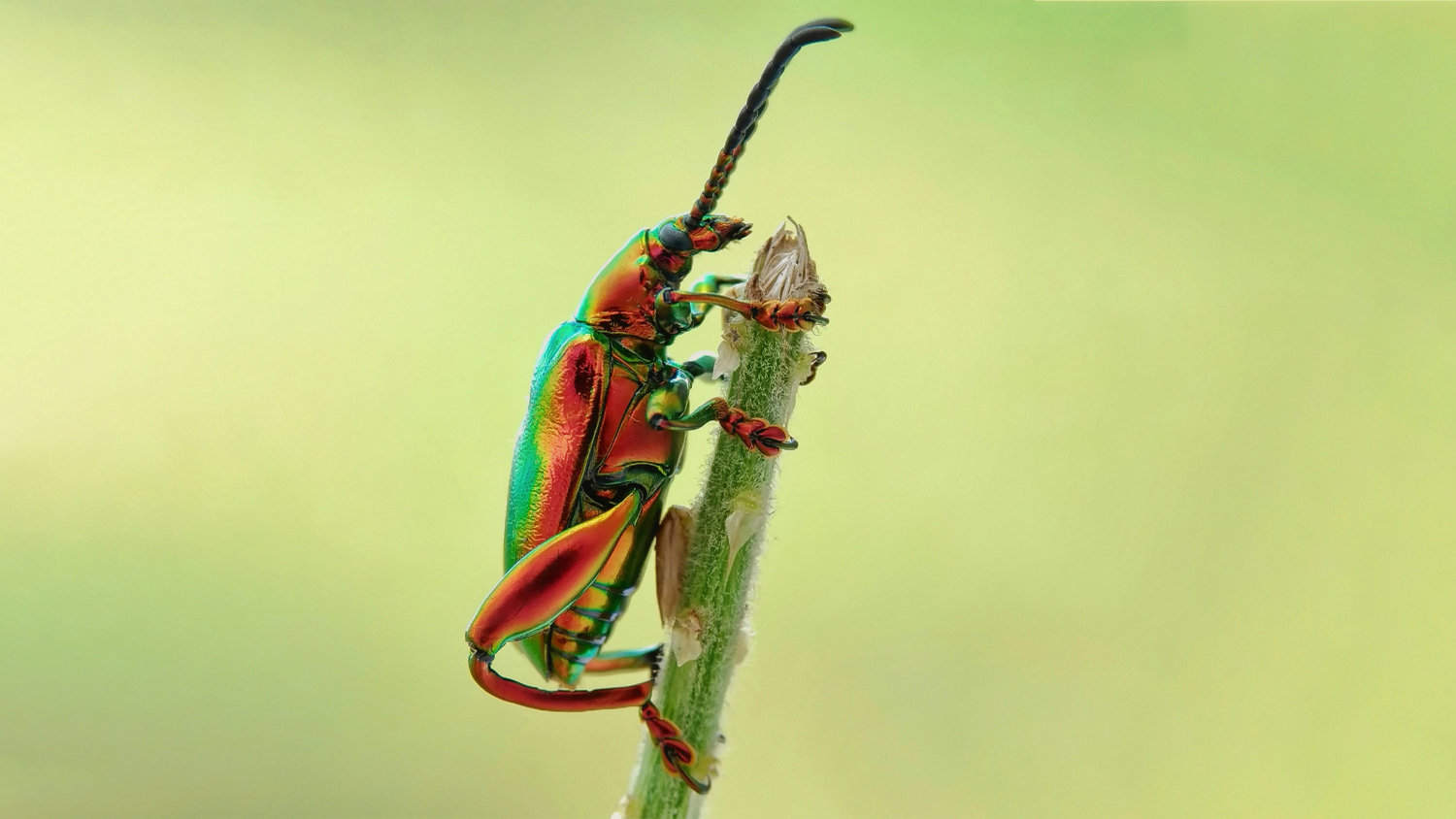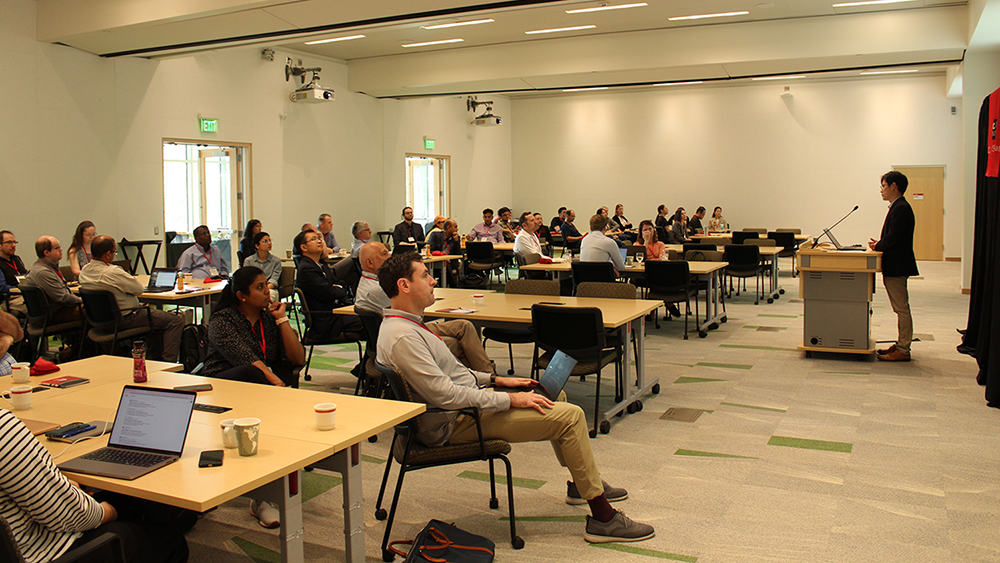Professor Qingshan Wei is the PI of a Pioneering “Convergence Accelerator” Research Grant

The original version of this article was written by Brent Lancaster, Director of Engineering Communications
Professor Qingshan Wei is the principal investigator (PI) for a Phase I Convergence Accelerator Track L award from the National Science Foundation (NSF). The Convergence Accelerator program “addresses national-scale societal challenges through use-inspired convergence research. Using a convergence approach and innovation processes like human-centered design, user discovery, and team science and integration of multidisciplinary research, the Convergence Accelerator program seeks to transition basic research and discovery into practice—to solve high-impact societal challenges aligned with specific research themes (tracks).”
In this case, the focus of the research is to enhance the use of olfactory sensors to address diagnostic needs for human and plant diseases as well as environmental monitoring purposes. The research team is creating a framework that will support the development and commercialization of volatile organic compound (VOC) sensors.

Wei, an associate professor of chemical and biomolecular engineering, is working with several colleagues from NC State, including Co-PIs Alper Bozkurt (Department of Electrical and Computer Engineering), Yong Zhu (Mechanical and Aerospace Engineering), Coby Schal (Department of Entomology and Plant Pathology), and Nelson Vinueza Benitez (Department of Textile Engineering, Chemistry and Science).
“Olfactory sensors are a type of chemical sensor that have a wide range of applications in disease diagnostics, environmental monitoring and biosecurity, among other areas. The approach is quite unique as compared to other sensing methods as related to their noninvasive, rapid and high chemical specificity features,” Wei said.
“The NSF Convergence Accelerator Track L award is very timely and needed to support work in this area because there are major challenges to making this technology more broadly available to end users, especially as related to the moderate limit of detection and pace of the commercialization process,” he continued.
Wei and his colleagues recently convened a two-day WolfSens (Wearable Olfactory Sensing) meeting at the Plant Sciences Building on NC State’s Centennial Campus to tackle such concerns. The gathering attracted approximately 70 attendees, and the group discussed current and new directions in sensor development, including ways that technologies can be biologically inspired.

Plants and insects have impressive olfactory sensing systems that can inspire forward-thinking advancements. For example, jewel beetles are insects that can detect a burning tree 50 miles away. Learning from the physical attributes of insects and plants may enable researchers to improve product performance such as by increasing acuity in testing. Similarly, studying plant structures can stimulate innovative product designs.
“The main goal of the workshop was to build partnerships on VOC sensor development, identify critical sensor needs and accelerate the transformation of this technology from a lab prototype to commercializable products with direct societal impact, especially in future digital farming and personal health monitoring. During the workshop, we had fruitful discussions with leaders from various sectors, including academic research labs, industry, nonprofit organizations, healthcare, investment groups and government agencies. NC State is unique in this space because we house a large Weaver Dye Library in the College of Textiles, which is directed by Co-PI Nelson Vinueza Benitez,” Wei stated.
The Weaver Dye library consists of nearly 98,000 dyes, and the team plans to develop a machine-learning supported prediction and screening model to discover new VOC sensing dyes and to facilitate VOC sensor array design for users without prior chemistry knowledge.
Wei is a highly respected researcher who is a member of the Emerging Plant Disease and Global Food Security Cluster through the Chancellor’s Faculty Excellence Program. He co-leads the Infectious Diseases focus area of the Global One Health Academy. Additionally, he is a University Faculty Scholar (2024) and the recipient of the Goodnight Early Career Innovator Award (2023), the NSF CAREER Award (2020) and the Nano Research Young Innovator Award in NanoBiotech (2018).
Wei’s research group focuses on studying innovative and cost-effective methods for sensitive and accurate disease detection at the point-of-care (POC). Three of the technologies they’ve developed are a portable technology that allows farmers to identify plant diseases in the field by using a handheld device that works by sampling the airborne VOCs the plants release through their leaves; a new technique that uses microneedle patches to collect DNA from plant tissues in one minute, rather than the hours needed for conventional techniques; and the first portable system, based on smartphone technology, that can test for cyanotoxins in water.
Wei received his Ph.D. in chemistry from Purdue University and his B.S. and M.S. degrees from Zhejiang University. Before joining the faculty at NC State, he was a postdoctoral researcher at the University of California, Los Angeles (UCLA).